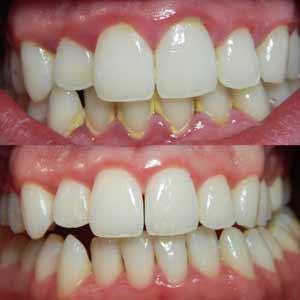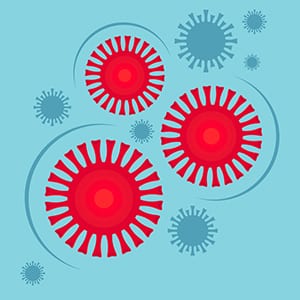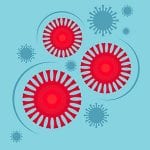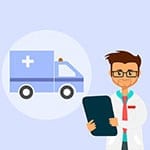Gums protect and support your teeth and the tissues that affix them to the bone. When you suffer from gum disease, you risk losing some of your pearly whites as well as damaging your overall health. In our first article on gum disease we will focus on it’s initial, more common, and less severe form – gingivitis.
How Gum Disease and Gingivitis Develop
Gum disease usually starts in areas of your mouth that you may not brushing enough or not keeping clean. As the result, bacteria build up creates a film on your teeth and causes inflammation.
Who’s at Risk for Gum Disease and Gingivitis
According to the CDC, around 50% of adults over 30 have gum disease. After age of 65, that number goes up to 70%. You may be more likely to get gum disease if you:
- use tobacco products
- have a family history of gum disease
- grind or clench your teeth
- have diabetes
- prone to high stress
- are pregnant.
Some birth control, antidepressants, and heart medications may also raise your risk of gum disease. Tell your dentist about any medications you take regularly. The best way to eliminate the risk factors that make you more susceptible to gum disease is quit smoking, manage your diabetes, or if you’re pregnant or regularly take medications, visit your dentist every three months.
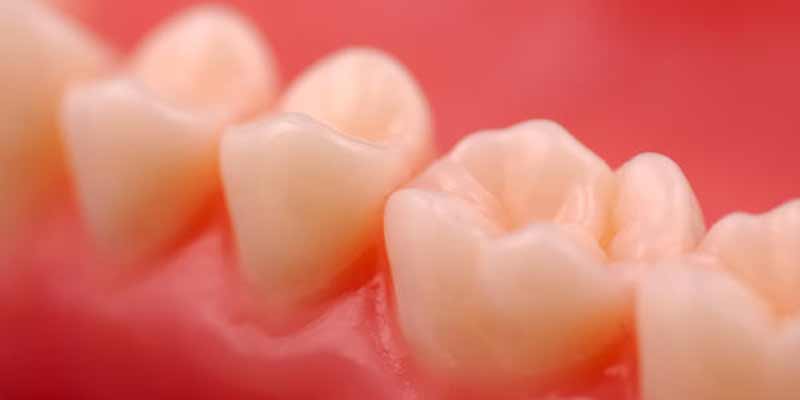

How to Prevent Gum Disease and Gingivitis
Similarly, the best way to prevent gum disease and gingivitis is to maintain good dental hygiene. A thorough teeth brushing with a toothbrush and floss should take three to five minutes. Flossing before you brush allows to clean away loosened food particles and bacteria.
In addition to regular brushing, see your dentist or dental hygienist regularly for professional teeth cleaning, usually every six to 12 months. If you have risk factors that increase your chance of developing gingivitis, you may need professional dental cleanings more often.
What Are the Symptoms of Gum Disease and Gingivitis
Inflammation and swelling of the gums are the first warning signs of gum disease. There is usually no pain associated with early stages. Other symptoms may include:
- gum redness
- bleeding while brushing or flossing
- receding gum line
- loose teeth
- persistent bad breath
- mouth sores.
If you don’t treat gum disease or gingivitis, your gum condition may get worse and quickly. Infection and inflammation can spread deeper into the gum tissues that support the tooth and become destructive. The gums then will begin to pull away from the teeth, which lets in more bacteria. At this stage, gum disease is called periodontitis, which we will cover in the next article of the series.
How to Treat Gum Disease and Gingivitis
Probably the only reliable method of treating gum disease is to visit your dentist for a thorough professional dental cleaning that will remove plaque – the root cause of the problem. Your dentist will also look for other causes of gum infection and plaque, like loose fillings or crowns. If your gum disease is at an advance stage, you may need a procedure called deep cleaning or scaling. Your dentist will clean around all the affected areas and will go down to the bottom of the pockets around each tooth.
Your dentist may also take x-rays to check for bone loss. If the gum disease is severe or doesn’t get better over time, you might need surgery. Your general dentist may also refer you to a periodontist, a dentist who specializes in gum disease.
How to Manage Gum Disease and Gingivitis
Like with most dental problems, prevention is key when it comes to battling gum disease. To prevent plaque buildup and gum disease you should:
- brush with fluoride toothpaste twice a day
- clean between the teeth with floss or another interdental cleaning tool
- rinse twice daily with an antiseptic mouth wash
- visit your dentist regularly.
You do not need to be an established River Dentistry patient to get help with your gum disease problems, to receive regular dental cleaning, deep cleaning/scaling, or just get evaluated. Our convenient Downtown Los Angeles dental office is open till 7:00 PM on weekdays and till 4:00 PM on Saturdays. In addition to everyday low prices, we frequently offer first time patient cleaning/deep cleaning best in Los Angeles dental specials and discounts. Call us at 213-486-0006 or use our online appointment system to make your appointment today!





